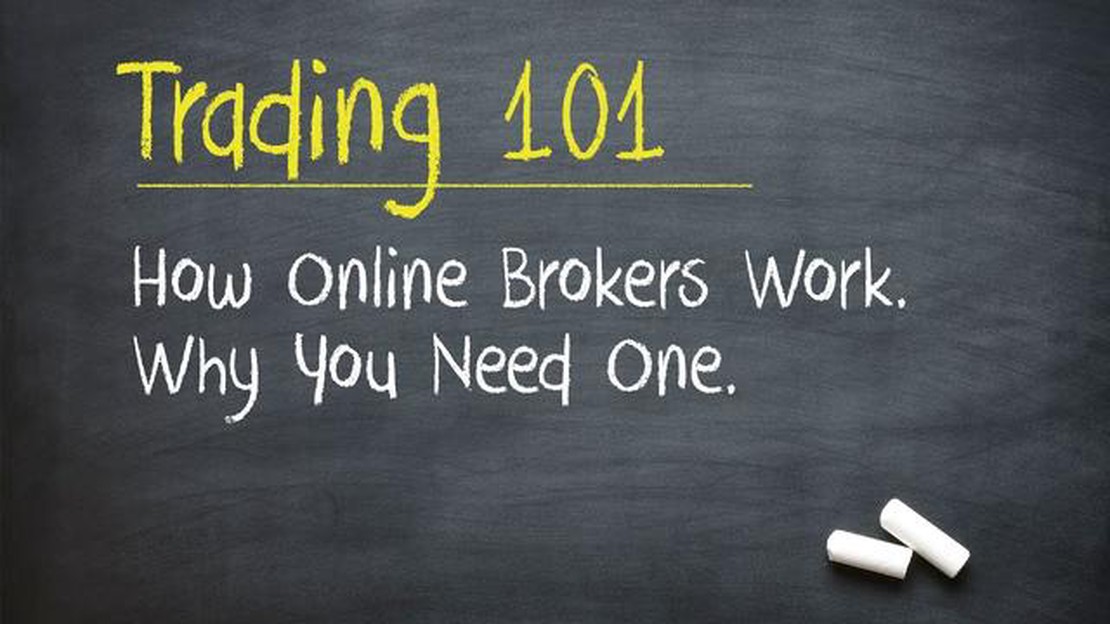Best Techniques to Load Balance into Your Forex Card | Helpful Tips
How to Load Balance into Your Forex Card When traveling abroad, it is important to have a reliable way to access and manage your money. One popular …
Read Article
Forex trading is a popular investment option for those looking to make money in the financial markets. However, before diving in, it’s important to understand the fees and charges associated with forex trading. One of the key players in this field are forex brokers, who provide traders with access to the foreign exchange market. In this article, we will explore how forex brokers charge their fees and what traders should be aware of.
Forex brokers earn their money mainly through spreads, which is the difference between the bid and ask price of a currency pair. They act as intermediaries between traders and liquidity providers, who are responsible for ensuring there is enough liquidity in the market. Forex brokers can charge fixed or variable spreads, depending on their business model. Fixed spreads remain constant regardless of market conditions, while variable spreads can fluctuate due to factors such as market volatility and liquidity.
In addition to spreads, forex brokers may also charge commissions on trades. This fee is usually a fixed amount per lot or a percentage of the trade volume. Commissions are more commonly associated with brokers who offer lower spreads. Some brokers may offer commission-free trading, but it’s important for traders to understand that this doesn’t mean the broker is not making money. Instead, they may compensate for the lack of commissions by widening the spreads.
Finally, forex brokers may also charge other fees such as account maintenance fees, withdrawal fees, and inactivity fees. These fees can vary between brokers, so it’s important to carefully read and understand the broker’s terms and conditions before opening an account. Traders should also consider the overall quality and reliability of the broker’s services, as it’s not just about the fees, but also the level of customer support, trading platforms, and educational resources.
Understanding how forex brokers charge their fees is crucial for any trader looking to enter the forex market. By being aware of the different types of fees and charges, traders can make informed decisions and choose a broker that suits their trading style and budget. It’s also important to regularly review and compare the fees of different brokers, as they can have a significant impact on profitability in the long run.
When engaging in forex trading, it is important to understand the fees charged by forex brokers. These fees can have a significant impact on your trading costs and overall profitability. Here are some of the most common fees charged by forex brokers:
Read Also: Understanding the Trading System in the Stock Exchange: A Comprehensive Guide
When choosing a forex broker, it is important to carefully consider the fees they charge. While low fees may be attractive, it is also important to consider other factors such as the broker’s reputation, customer service, trading platform, and regulatory compliance. By understanding and comparing the fees charged by different brokers, you can ensure that you are getting the best value for your trading needs.
Forex brokers charge traders in various ways to make money. Here are some common ways forex brokers charge:
Read Also: Should You Give Cash or Appreciated Stock as a Gift?
It’s important for traders to carefully review a broker’s fee structure before opening an account and to consider the overall costs of trading. Choosing a broker with transparent and competitive fees can help traders optimize their trading performance.
Forex broker fees refer to the charges imposed by brokers for their services in facilitating forex trading. These fees can include spreads, commissions, overnight rollover fees, and other transaction costs.
No, forex brokers do not charge the same fees. The fees can vary depending on the broker’s business model, the type of trading account, the trading platform used, and the specific services provided. It is important for traders to compare fees between different brokers before choosing one.
Forex brokers charge spreads by adding a markup to the interbank exchange rates. The spread is the difference between the bid price and the ask price of a currency pair. This is how brokers make money on forex trades.
Overnight rollover fees, also known as swap fees, are charges imposed by forex brokers for holding positions overnight. These fees are based on the interest rate differentials between the two currencies in the currency pair being traded and can be either positive or negative depending on the direction of the trade.
How to Load Balance into Your Forex Card When traveling abroad, it is important to have a reliable way to access and manage your money. One popular …
Read ArticleBank of Baroda Forex Services: Everything You Need to Know Bank of Baroda is one of the leading banks in India, known for its extensive range of …
Read ArticleUnderstanding forex tick scalping Forex tick scalping is a trading strategy that focuses on profiting from small price movements in the foreign …
Read ArticleUsing US Dollars in Zambia: Essential Information When traveling to Zambia, it’s important to understand the country’s currency situation. While the …
Read ArticleWhat is forex buying rate? Forex, or foreign exchange, is a decentralized market for trading different currencies. It is the largest and most liquid …
Read ArticleTrading Gold in NinjaTrader: Everything You Need to Know If you are interested in trading gold, you may be wondering if it is possible to do so in …
Read Article